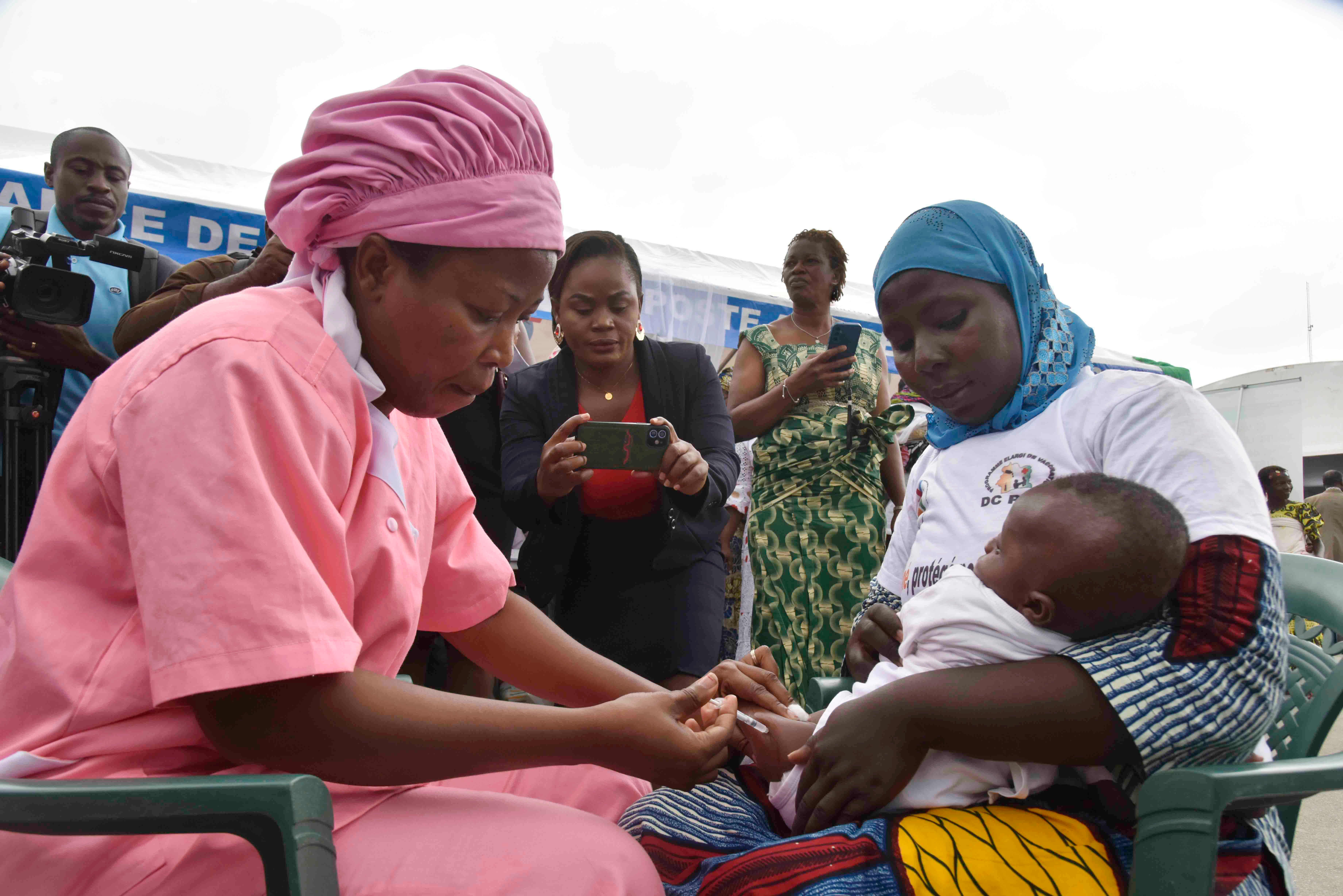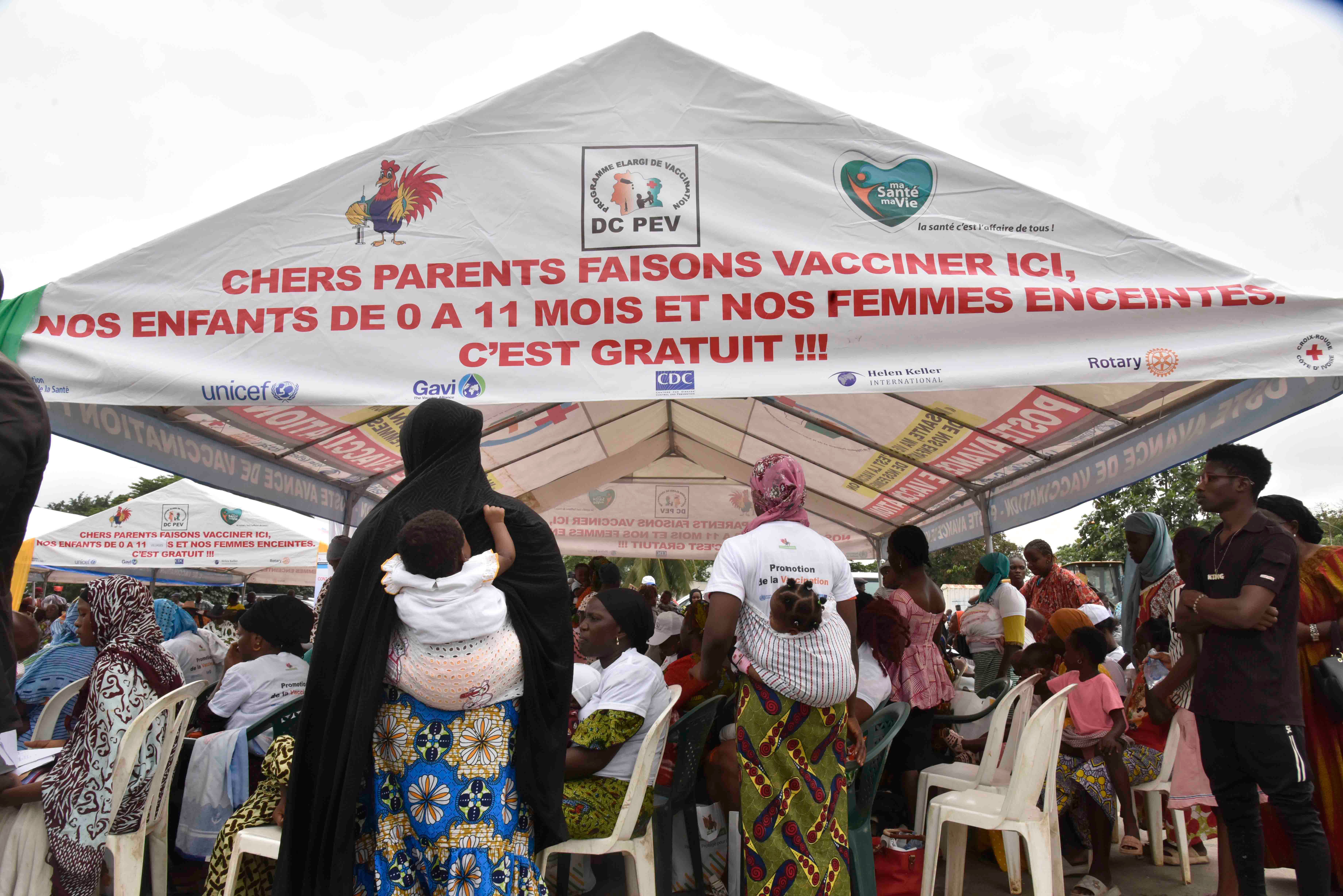‘New era’ in malaria control begins with vaccination campaign for children in Ivory Coast
The R21 vaccine, which costs £3 a dose, is the culmination of 30 years of research by Oxford University’s Jenner Institute

The first affordable malaria vaccine has been administered to children in Ivory Coast, the beginning of a campaign that experts hope might curb the impact of one of Africa's top killers.
The West African country became the first to start rolling out the newest vaccination targeting malaria in an effort that will initially treat 250,000 babies under the age of two across 16 regions of the country.
The historic immunisation hopes to quell the spread of the mosquito-borne disease that kills four people a day, including three children under the age of five, in the country.
The R21 vaccine, which costs £3 a dose, is the culmination of 30 years of research by Oxford University’s Jenner Institute (which also worked on AstraZeneca’s Covid-19 jab) and is being rolled out in areas where malaria is endemic.

Adar Poonawalla, chief executive of the Serum Institute of India, which is manufacturing the doses, said: “Reducing the malaria burden is finally within sight.” Research suggests it is close to 80 per cent effective at preventing severe disease and death in the first year in children and that protection is extended for at least another year with a booster.
The first malaria vaccine was endorsed by the World Health Organisation three years ago but came with the caveat that it required four doses and protection fades within months. GSK pharmaceuticals also could only produce around 15 million doses, in comparison to India’s Serum Institute which has already made 25 million doses of the Oxford vaccine.
The combination of its low cost and the production capacity of the R21 vaccine puts it at a huge advantage over the only other malaria vaccine
Malaria vaccines will never completely stop the spread of the disease and experts have long warned that other measures such as insecticide spraying, improved treatments and the use of bed nets will still be critical. The Gavi vaccine alliance, which helps poor countries buy vaccines, said other countries including the Central African Republic, Chad and South Sudan have also received supplies of the Oxford-developed jab.
Malaria is a parasitic disease spread by mosquitoes and the vaccine works by targeting the first stage of the parasite’s life cycle before it gets to the liver.
Professor Adrian Hill, of Oxford University, said: “The roll-out of the malaria vaccine marks the start of a new era in malaria control interventions with the high efficacy vaccine now accessible at a modest price and very large scale to many countries in greatest need. We hope that very soon this vaccine can be provided to all countries in Africa who wish to use it.”
The Central African Republic, Democratic Republic of Congo, Chad, Ghana, Mozambique, Uganda, Burkina Faso, Burundi and Nigeria are all expected to introduce the vaccine by the end of the year, with another 15 African nations due to follow later.
Associated Press contributed to this report
Subscribe to Independent Premium to bookmark this article
Want to bookmark your favourite articles and stories to read or reference later? Start your Independent Premium subscription today.

Join our commenting forum
Join thought-provoking conversations, follow other Independent readers and see their replies
Comments